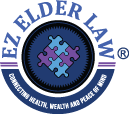On February 21, 2024, the Georgia Court of Appeals decided the case of In Re Estate of Anne Smith Florance. In that case, Florance had executed a revocable trust during her life and a Will pouring the remainder of her estate into the trust. The trust was first established in 1997 and amended several times […]
Blog
In White v. Stanley (Georgia Ct. App. 10/3/2023), Rhonda White appealed a jury verdict in favor of the defendants relating to a motor vehicle collision. White argued that the trial court gave an improper jury instruction regarding the Preponderance-of-the-Evidence Standard. The trial court instructed the jury using the existing pattern jury instructions. However, the law […]

In Estate of Hargett v. Brown (Tenn. App. 6/9/2023), the Decedent, Willie Hargett, had separated from his wife, Robbie Hargett. Despite the separation, there was no divorce. After the separation, Mr. Brown entered into a relationship with Charlotte Brown. The Decedent had legal documents prepared after he was diagnosed with lung cancer. He sought to […]

The collateral estoppel (issue preclusion) rule is part of the finality doctrine along with Res Judicata (claim preclusion). It general prevents a party from re-litigating the same issue in a second court. In other words, you don’t get a second bite at the apple in another court simply because you were dissatisfied with the result […]

In April, 2022, we reported that HB 620 altered how settlements for minors can be approved under O.C.G.A. § 29-3-3, at least in cases where the trial court approves direct payment to a trust. Prior to passage of HB 620, Section 29-3-3 read as follows: 2021 Version For purposes of this Code section, the term […]

“In general, in order to maintain an action, a party “must establish standing to sue on the ground asserted, which requires showing an injury in fact that was caused by the breach of a duty owed by the defendants to the plaintiffs and that will be redressed by a favorable decision from the court.” Ames […]

Ms. Humprey was a hospital patient and the University of Tennessee Medical Center filed a petition for Conservatorship. The petition alleged she was unable to make appropriate decisions regarding her treatment and medical care. Petitioner attached the report of Dr. Taylor Wright in support of its petition. The Court appointed a guardian ad litem and […]

On September 15, 2022, the Ohio Court of Appeals affirmed a Probate Court decision appointing a guardian despite a spotty record of the proceedings below. In In re Guardianship of S.B., the proposed was suffered a traumatic brain injury. In 2004, the ward’s father filed a petition for guardianship and was appointed guardian. In 2007, […]

As a general rule, discovery is not permitted in any proceeding before an ALJ, except to the extent specifically authorized by law. Ga. R. & Regs. § 616-1-2-.38. In Bd. of Dental Examiners v. Daniels, 137 Ga. App. 706 (1976). Appellant/defendant contends that the Civil Practice Act is not applicable to proceedings under the Georgia […]

There are times when formal “legal” communication is necessary. This post addresses several instances regarding how that can be done. It is not meant to be all inclusive and, in many cases, specific communication rules apply. Beginning a lawsuit: When you begin a lawsuit, a summons must be served on the Defendant(s). Generally, Rule 4 […]



